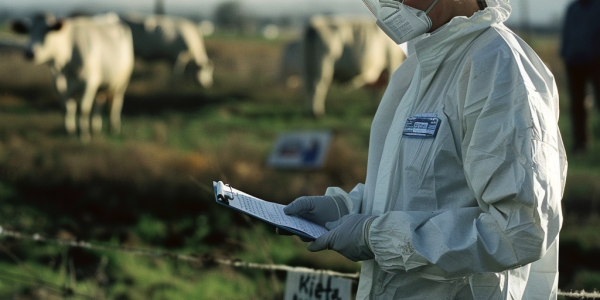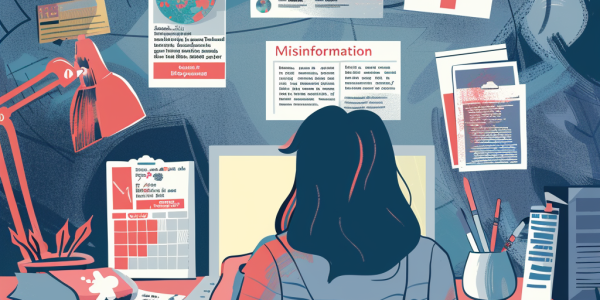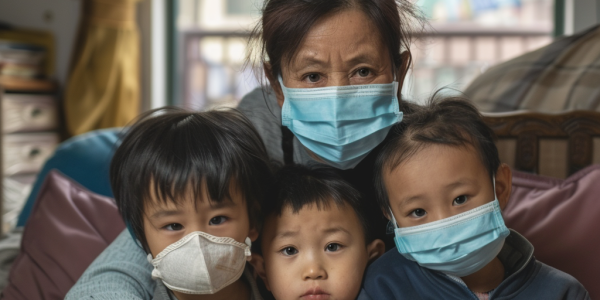Two Human Cases of H5N1 Bird Flu Confirmed in Madera County
Madera County has confirmed two human cases of the H5N1 bird flu virus, prompting health officials to monitor the situation closely. Both individuals had direct contact with infected dairy cattle and are currently experiencing mild symptoms. Public health officials emphasize that the risk to the general public remains low, while urging residents to take preventive measures against the bird flu. Stay informed about this developing situation and follow health guidelines to ensure community safety.
GPMB Report Highlights Urgent Pandemic Threats and Need for Global Preparedness
The Global Preparedness Monitoring Board’s annual report highlights critical pandemic threats, including avian influenza H5N1 and emerging mpox strains in Africa. It emphasizes the need for a proactive One Health approach, rebuilding trust in public health, and preparing for diverse health crises. With recent mpox cases reported in Zimbabwe, the report serves as a call for global cooperation and vigilance against future pandemics.
Urgent Health Alert: Bird Flu Control Strategies Found Ineffective
A new study from The Pirbright Institute reveals alarming findings about the H5N1 avian influenza virus, indicating ineffective control measures and potential risks to human health. The virus has spread from birds to cattle, raising concerns about new transmission pathways. Experts urge enhanced surveillance and testing protocols to prevent a potential pandemic, emphasizing the need for public awareness and proactive measures against bird flu.
WHO Refutes Misinformation on Election Cancellations Amid Bird Flu Outbreak
The World Health Organization (WHO) has refuted false claims circulating on social media that it ordered the cancellation of elections due to a bird flu outbreak. Misleading information from The People’s Voice suggested urgent lockdowns and election halts, but WHO officials confirmed these assertions are entirely false. The organization emphasizes the need for enhanced surveillance and accurate public health communication amid ongoing misinformation challenges.
Study Shows Reduced Human Activity During COVID-19 Pandemic Lowered Stress Levels in Humpback Whales
A recent study by the University of Queensland found that Australian humpback whales experienced lower stress levels during the early stages of the COVID-19 pandemic due to reduced human activity. The research highlighted the positive impact of decreased human presence on the well-being of whales, emphasizing the importance of minimizing underwater noise pollution to ensure their sustainability.
Debates Sparked by Studies on Government Responses to COVID-19
Recent studies have sparked debates on the effectiveness of government responses to the COVID-19 pandemic. While some interventions like school closures may have reduced cases, the overall impact remains debated. Other research suggests early restrictions played a crucial role in curbing the virus. The Royal Society review in the UK highlighted the contribution of non-pharmaceutical interventions in reducing infections. The ongoing debate emphasizes the need for evidence-based decision-making in public health crises.
Global Surge in Communicable Diseases Post-Covid-19
The global surge in communicable diseases post-Covid-19 is a concerning trend observed in numerous regions, with illnesses like whooping cough and pneumonia on the rise. Data from over 60 organizations reveal that 44 countries have reported infectious disease resurgences exceeding ten times pre-pandemic levels. Researchers are working to unravel the mystery behind this sudden increase, with factors including Covid-19 lockdown impacts, disrupted vaccine administration, climate change, social inequality, and strained healthcare systems.
Study Suggests Covid Vaccines May Have Contributed to Increase in Excess Deaths
A study suggests that Covid vaccines may have contributed to the increase in excess deaths during the pandemic. Researchers call for thorough investigations into potential adverse effects of the vaccines, emphasizing the need to address serious injuries and deaths post-vaccination. Concerns about side effects such as ischaemic stroke and blood clotting have been raised, highlighting the importance of monitoring and reporting vaccine-related harms. The disruptions caused by the pandemic, including delays in medical treatments and restricted healthcare access, have also impacted mortality rates worldwide.
NIH Scientists Rake in $710 Million in Royalties from Drug Makers During Pandemic
Recent revelations from the NIH have uncovered a $710 million royalty windfall for agency scientists during the pandemic, with NIAID receiving the bulk of $690 million. Transparency advocates are pushing for details on these lucrative deals, especially regarding COVID vaccine royalties. Dr. Fauci faces scrutiny over potential conflicts of interest, underscoring the need for accountability within the NIH.
Communication Challenges in H5N1 Outbreak Response
The H5N1 bird flu outbreak has raised concerns about communication strategies, echoing past issues seen during the Covid-19 pandemic. Federal agencies like the USDA have faced criticism for delayed and confusing information dissemination. Despite reassurances from the CDC, concerns about virus mutation and public health risks persist. Comparisons to the initial Covid-19 communication challenges highlight the importance of clear, timely communication in managing public health crises.










